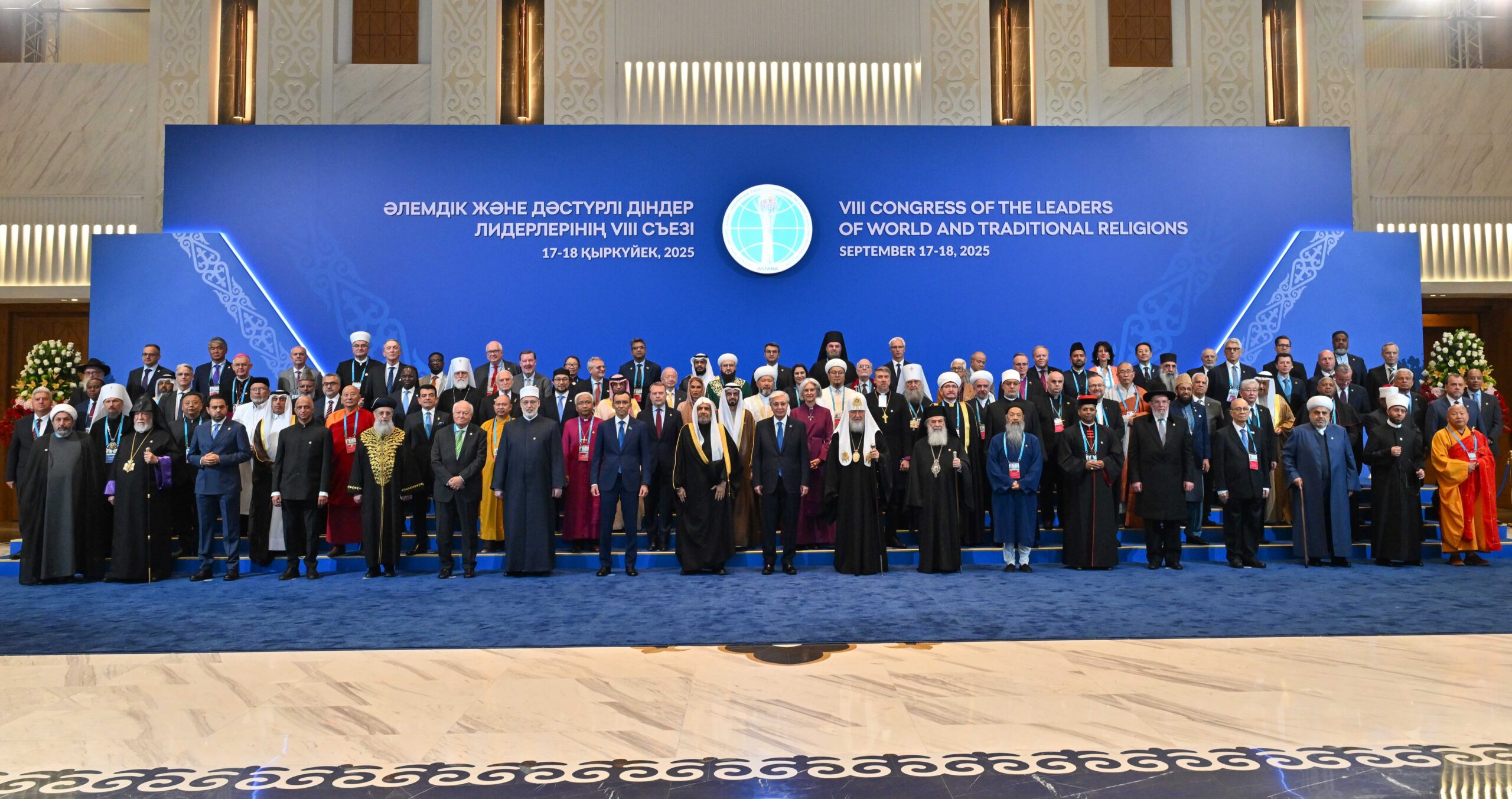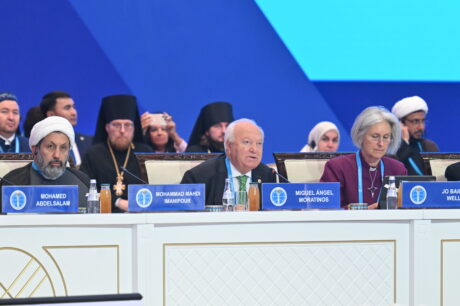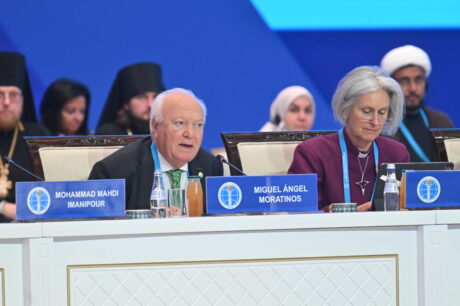Remarks by Mr. Miguel Ángel Moratinos,
High Representative for UNAOC and
United Nations Special Envoy to Combat Islamophobia,
at the 8th Congress of the Leaders of World and Traditional Religions:
Plenary Session on Dialogue for Religions: Synergy for the Future
Astana – 17 September 2025
Your Excellency, Mr. Kassym-Jomart Tokayev,
President of the Republic of Kazakhstan;
Your Excellency, the Honorable Maulen Ashimbayev,
the Head of the Secretariat of the Congress of the Leaders of the World and Traditional Religions and Chairman of the Senate of the Parliament of the Republic of Kazakhstan;
Eminencies,
Excellencies,
Distinguished Colleagues,
Ladies and Gentlemen;
I am truly honored to be back to your beautiful capital Astana to join you at this esteemed gathering of Congress of the Leaders of World and Traditional Religions. I warmly thank you for inviting me.
Allow me, at the outset, to commend His Excellency President Tokayev, and through him, the Government and the people of Kazakhstan, for convening and nurturing this unique global platform of interreligious dialogue.
In Astana, the steppes of Central Asia echo with a universal call for peace, dialogue and human dignity.
The very fact that this Congress has become an enduring tradition is testimony to Kazakhstan’s vision of fostering peace through dialogue, rooted in respect for diversity and the conviction that humanity is stronger when united.
We gather today under the main theme “Dialogue of Religions: Synergy for the Future.” This is not a matter of abstract aspiration. It is an imperative of our time.
The world we inhabit is turbulent. Conflicts rage across continents. Inequalities are widening, and trust between peoples is fraying. We are living through an age in which the misuse of religion as a tool for division is far too frequent.
In such times, our collective duty is to reclaim the peacemaking power of religions, and to remind humanity of the spiritual and moral foundations that bind us together as human beings.
Religions, at their core teachings, are a valuable source of compassion, forgiveness and reconciliation. Time and again, we have seen religious leaders stand at the forefront of efforts to ease tensions when political negotiations reach an impasse. Their voices carry a moral authority that can open doors where official diplomacy may struggle.
I can personally attest to that. As a veteran diplomat and politician and more so in my current capacity, I often resorted to the mediating skills of wise religious leaders and faith actors to achieve a breakthrough. This is what I would call spiritual diplomacy — diplomacy of conscience, grounded in ethical values, one that transcends politics.
Spiritual diplomacy complements the work of states and international organizations by appealing to the deepest aspirations of the human heart: the longing for peace, dignity and justice.
Let us recall that dialogue is not a one-time event or a random act of doing good. Dialogue is a way of life. At the United Nations Alliance of Civilizations, dialogue across cultures and religions is at the heart of our mandate. We know that dialogue, when sincere and sustained, becomes the foundation for peaceful living together.
As we turned 20 this year, our network of religious leaders and faith actors have evolved and expanded. We are the leading UN entity in intercultural and interreligious dialogue.
Distinguished Participants,
History offers us abundant examples of what is possible when religions engage in genuine dialogue. Medieval Andalusia, the exchanges along the Silk Road, or the flourishing of scholarship in Baghdad’s House of Wisdom — all remind us that civilizations advanced when faiths coexisted, when knowledge was shared, and when diversity was embraced.
Sacred texts, across all traditions, converge on the same timeless values: compassion for the vulnerable, justice for the oppressed, care for the stranger, dignity for the human being. These values are not relics of the past. They are living principles that can guide us in addressing the crises of today — from violent conflict to climate change, from polarization to poverty. If we allow these shared moral foundations to inform our actions, then synergy among religions becomes not only possible but inevitable.
Excellencies, Dear Friends,
The Congress of the Leaders of World and Traditional Religions has, since its inception, been a beacon of hope — a moral compass for humanity at times when the world seems adrift. Today, more than ever, we need such compasses.
Let us therefore move beyond words to action. Let us commit to joint initiatives that demonstrate solidarity across faiths. Let us raise our voices together against war and hatred, and for peace and human dignity. Let us show, through our common witness, that dialogue of religions is not a luxury — it is a necessity for the survival of humanity.
Allow me to conclude with a verse that resonates across traditions: “Blessed are the peacemakers, for they shall be called children of God.” These words, though rooted in one tradition, echo in the teachings of many. They remind us that the work of peacemaking is sacred work — work that transcends creed and culture.
May this Congress inspire us to renew our commitment to dialogue, deepen our synergy, and build together a future of peace, justice and hope.
I thank you.



